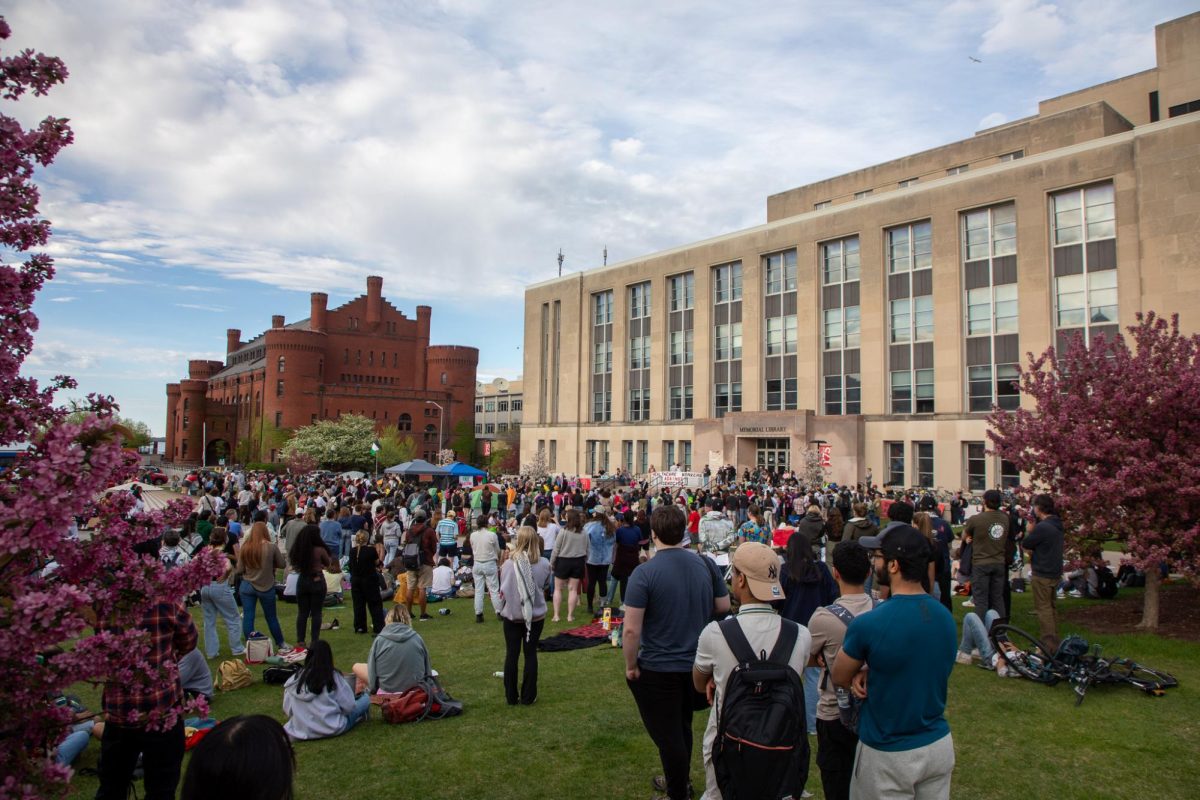We, as students, pay a lot in segregated fees. The total will be more than $900 this year. That is enough to cover my rent for a couple months. This number is also important for in-state students because segregated fees currently exceed 10 percent of their tuition bills. When collected from more than 41,000 students, that is a hunk of change — more than $32 million total.
When discussing students' ability to manage and administer this fund, we must first realize that the student-controlled portion of segregated fees is only around 20 percent of the total segregated fee levy — about $6.9 million. This is still a lot of money, but it is an important detail when talking about segregated fees. The rest of this money, known in the administrative world as nonallocable, is what pays for University Health Services, Recreational Sports and the Union. In this realm, students have only a peripheral role in guiding where these funds could go. I could pontificate about nonallocable segregated fees all day though. Let's focus. The gravy train, right?
Student-controlled segregated fees! Or so the fable goes. The idea is that state statute gives students control over a pot of money, a campus activity fee, to fund extracurricular activities, primarily student organizations. If you are an administrator, this is the point you start feeling uncomfortable. Students have control over money, levied from their fellow students, that goes to fund "the marketplace of ideas."
It would seem that if this system is not curtailed, we might soon find ourselves on a runaway train, charging full speed toward the gravy factory. Then to make our adventure even more suspenseful, we throw in the Southworth case, a Supreme Court decision that states all funding decision must be made regardless of the organization's viewpoint.
I know it sounds rocky and must be making you a bit nauseated. In a Badger Herald column by Jason Smathers last Wednesday ("Viewpoint issues derail gravy train," Sept. 26), some excellent concerns were brought up about whether we, as students, can even handle such a daunting task as trying to restrain a system that seemingly has no track, nothing preventing it from tumbling down the hill of fiscal responsibility only to burst into the flames of fiduciary mismanagement. OK, I think that is enough for that metaphor.
The question, metaphor aside, remains: How do students say "no?" Remember, we are living in a post-Southworth world here. Is it even possible for students to look at the criteria and say, "Viewpoint aside, we cannot create a sustainable system if we proceed to fund you?"
It seems that is the challenge for this coming year. In my opinion, the Student Services Financial Committee has begun to use these considerations when granting funding eligibility. Anyone who has attended a SSFC meeting this year knows the question is always: In addition to event programming and leadership development, what else do you do? This question is the eligibility criteria at work.
It is an important question because withoutit, it seems most of the other 756 registered student organizations could look to SSFC to get budgets, some currently exceeding $350,000. But as Mr. Smathers very poignantly observed, it is not simply enough to say, "No, you do not provide these crucial additional significant components to your program." SSFC members are challenged to say this disregarding any knowledge of the group's viewpoint.
Yet, it seems that this year, this is precisely what happened. SSFC looked at what the group presented as its program and asked about what events the group put on, but also what additional components the group provided. Then, members were forced to ask themselves whether the additional components were significant enough to warrant funding from SSFC. And often SSFC's answer was, "No, this group does not provide significant additional components." At the end of the eligibility cycle, SSFC found that eight of the 15 groups requesting eligibility did not fulfill the criteria.
It may seem like these types of decision are arbitrary. It makes it seem like hundreds of thousands of dollars hinge on a couple college students' interpretation of the word "significant." I will assert that indeed many groups were not given money because they were unable to show that additional components to their programs were significant, but this distinction is very intentional. Every committee member interprets the word "significant" a little differently, but the general thrust is that to be "significant," the group must show that services it provides, in addition to events and leadership development, are a priority of its program and constitute a major reason why its program is a service rather than a simple registered student organization.
SSFC is funding groups that focus on providing services for students. It is using the criteria in a viewpoint-neutral manner and still has been able to make tough decisions. Can the criteria be improved? Of course, but with the tools it has, SSFC has been able to make tough decisions that will result in a sustainable and fiscally responsible student segregated fee system, and it did it in the post-Southworth world.
This is only the first step in making the system truly sustainable, but unequivocally enforces the fact that students are able to manage a $6.9 million system in a way that will make it sustainable into the future.
Alex Gallagher ([email protected]) is chair of SSFC














